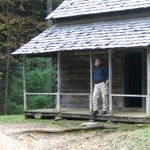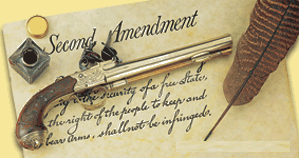The Second Amendment
A well regulated Militia, being necessary to the security of a free State, the right of the people to keep and bear Arms, shall not be infringed.
Over the years, the Supreme Court has upheld that the right to keep and bear arms is an individual right. Consider these landmark cases:
In United States v. Miller, 307 U.S. 174 (1939), the Supreme Court refused to take judicial notice that a short-barreled shotgun was useful for militia purposes. Nowhere did the court hold that an individual does not have a right to keep and bear arms. In United States v. Gomez, 81 F.3d 846, 850 n. 7 (9th Cir. 1996), Judge Kozinski opined that "The Second Amendment embodies the right to defend oneself and one’s home against physical attack."
In United States v. Hutzell, 217 F.3d 966, 969 (8th Cir. 2000), the court held that "... an individual's right to bear arms is constitutionally protected, see United States v. Miller ...."
In United States v. Emerson, 270 F.3d 203 (5th Cir. 2001), the court examined United States v. Miller and held: "We reject the collective rights and sophisticated collective rights models for interpreting the Second Amendment. We hold, consistent with Miller, that it protects the right of individuals ... to privately possess and bear their own firearms."
Following the midterm elections and the outcome thereof, we can expect a renewed cry from some groups to ban certain types of guns as well as some caliber of ammunition. It's already begun in Massachusetts where the Brady campaign and others hold sway. They claim that banning certain firearms, or registering all firearms, does not constitute an infringement of Second Amendment rights. But that's a ploy that's been tried before. In 1788 George Mason exposed it at Virginia's constitutional convention: "[W]hen the resolution of enslaving America was formed in Great Britain, the British Parliament was advised by an artful man . . . to disarm the people; that it was the best and most effectual way to enslave them; but that they should not do it openly, but weaken them, and let them sink gradually."
Our founders risked their lives and fortunes to create a free nation, and they guaranteed freedom as the birthright of American citizens through the Bill of Rights. The Second Amendment remains the first right among equals, because it is the one we turn to when all else fails.


No comments:
Post a Comment